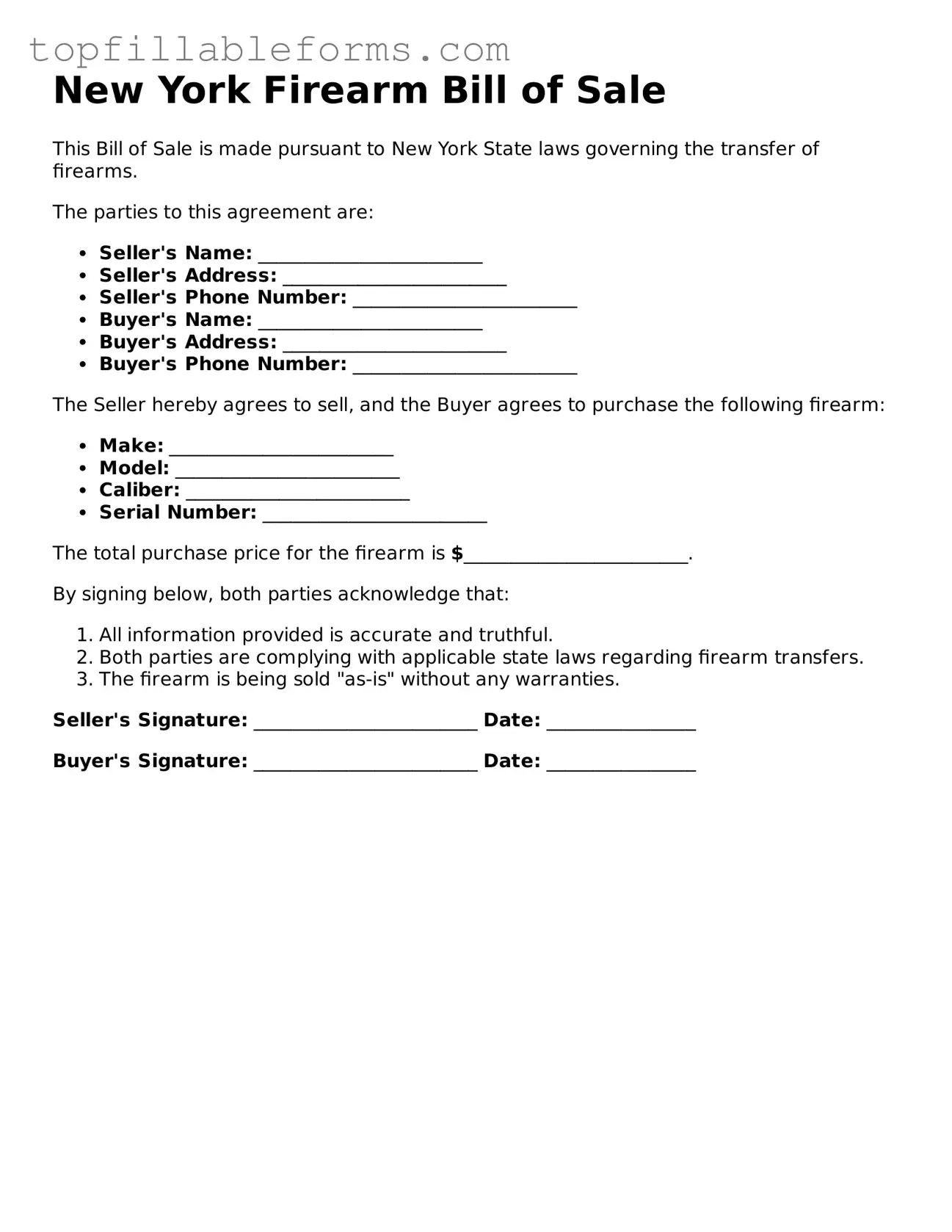Attorney-Verified Firearm Bill of Sale Template for New York
The New York Firearm Bill of Sale form is a document used to record the sale or transfer of a firearm between two parties. This form ensures that both the buyer and seller have a clear understanding of the transaction details. Understanding its importance can help facilitate a smooth and legal transfer of ownership.
Open Firearm Bill of Sale Editor Here

Attorney-Verified Firearm Bill of Sale Template for New York
Open Firearm Bill of Sale Editor Here
Finish the form now and be done
Finish your Firearm Bill of Sale online by editing, saving, and downloading fast.
Open Firearm Bill of Sale Editor Here
or
▼ PDF File
